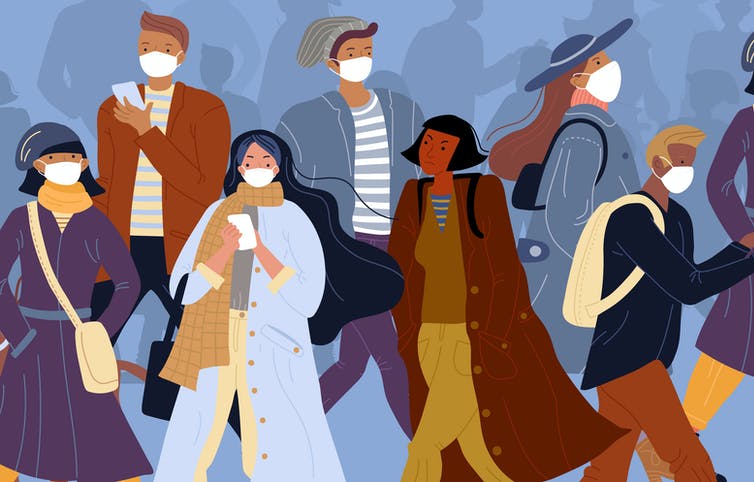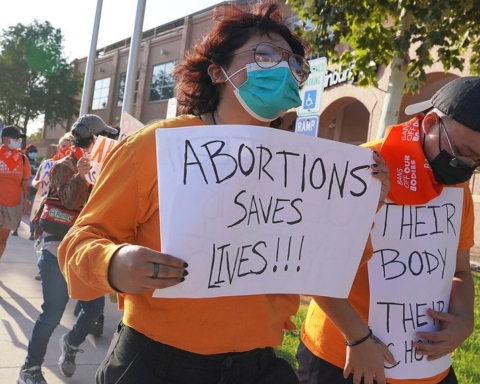Throughout this pandemic, we’ve been told, practice social distancing, wear your mask, wash your hands and use hand sanitizer. Although these are all tools to keep us safe and healthy dieting these troubled times, it has definitely took a toll on our everyday life.
Not as loveable as Jim Carrey’s The Mask, but COVID masks are a big controversy in today’s world. To wear, or not to wear the mask: that is the question. Do they work? Or are the hindering us and hurting us in the long run.
COVID-19 is thought to spread mainly through close contact from person-to-person. Some people without symptoms may be able to spread the virus. We are still learning about how the virus spreads and the severity of illness it causes.
The virus is thought to spread mainly:
- Between people who are in close contact with one another (within about 6 feet).
- Through respiratory droplets produced when an infected person coughs, sneezes, or talks.
- These droplets can land in the mouths or noses of people who are nearby or possibly be inhaledinto the lungs.
- COVID-19 may be spread by people who are not showing symptoms.
It may be possible that a person can get COVID-19 by touching a surface or object that has the virus on it and then touching their own mouth, nose, or possibly their eyes. This is not thought to be the main way the virus spreads, but we are still learning more about how this virus spreads. Which is called “Cross Contamination”
Protect yourself and others
The best way to prevent illness is to avoid being exposed to this virus. You can take steps to slow the spread.
- Maintain good social distance (about 6 feet). This is very important in preventing the spread of COVID-19.
- Wash your hands often with soap and water. If soap and water are not available, use a hand sanitizer that contains at least 60% alcohol.
- Routinely clean and disinfect frequently touched surfaces.
- Cover your mouth and nose with a mask when around others.
Stress during an infectious disease outbreak can sometimes cause the following:
- Fear and worry about your own health and the health of your loved ones, your financial situation or job, or loss of support services you rely on.
- Changes in sleep or eating patterns.
- Difficulty sleeping or concentrating.
- Worsening of chronic health problems.
- Worsening of mental health conditions.
Healthy ways to cope with stress
- Know what to do if you are sick and are concerned about COVID-19. Contact a health professional before you start any self-treatment for COVID-19.
- Know where and how to get treatment and other support services and resources, including counseling or therapy (in person or through telehealth services).
- Take care of your emotional health. Taking care of your emotional health will help you think clearly and react to the urgent needs to protect yourself and your family.
- Take breaks from watching, reading, or listening to news stories, including those on social media. Hearing about the pandemic repeatedly can be upsetting.
The Question Remains The Same, Do You Feel Mask Are Necessary?






